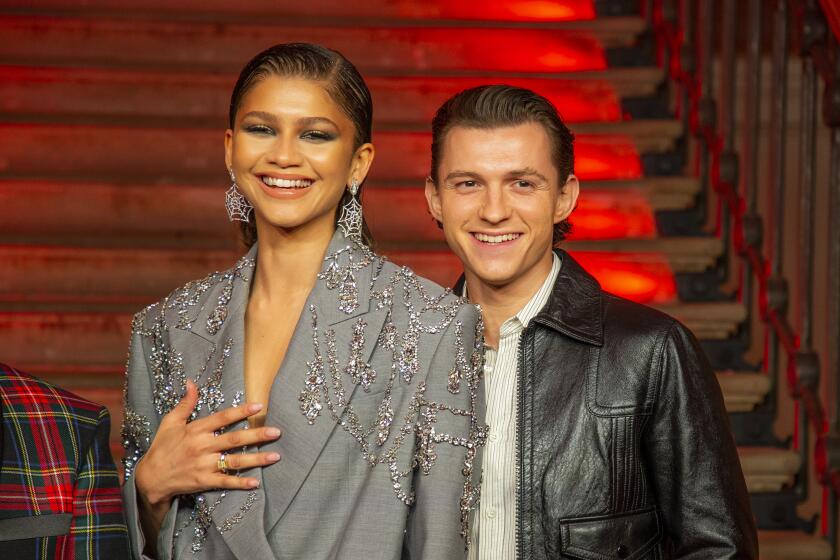Comedies make life more fun, plus the best films to see in L.A.
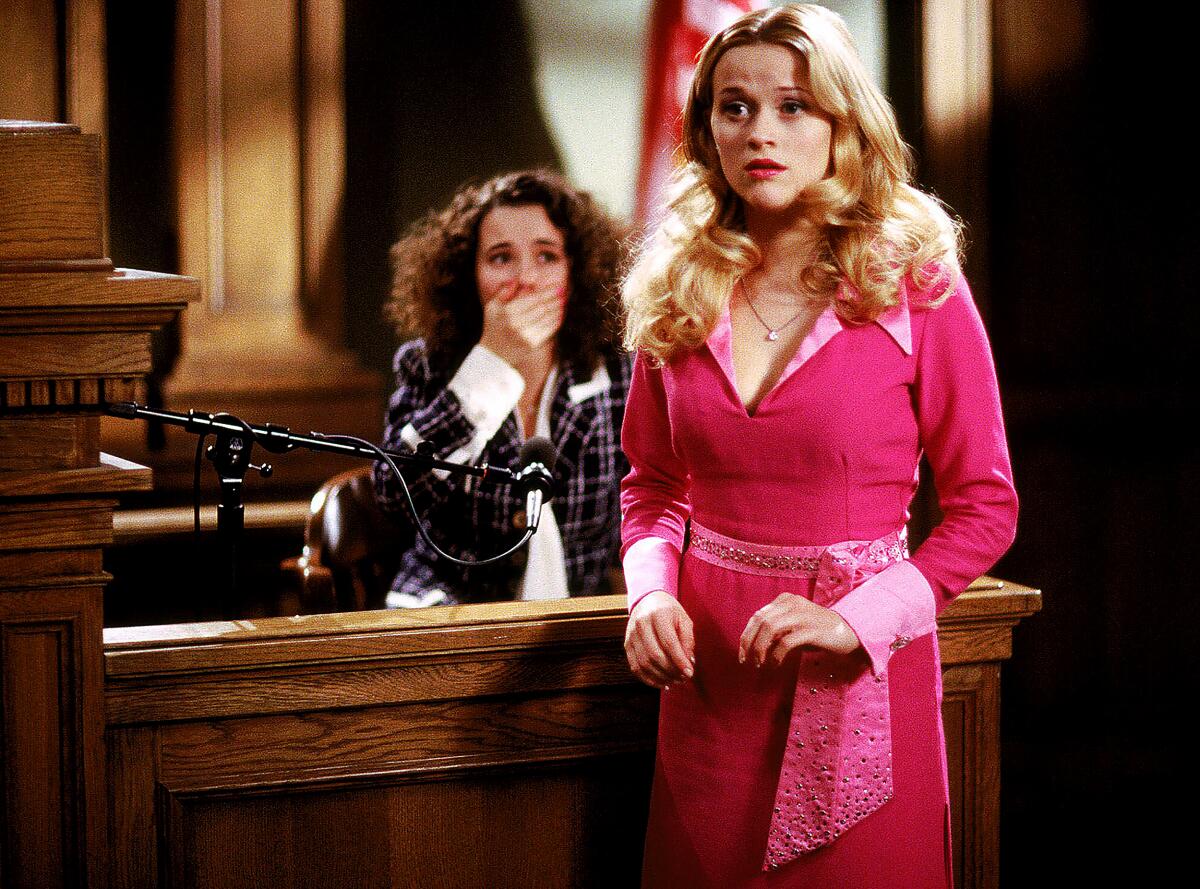
Hello! I’m Mark Olsen. Welcome to another edition of your regular field guide to a world of Only Good Movies.
As if we aren’t already experiencing an astonishing renaissance for repertory screenings here in Los Angeles, along comes another new venue. Within the recently reopened Vista Theater now arrives the Video Archives Cinema Club, screening films in VHS and 16mm. On the calendar for the grand opening month of April, Vista impresario Quentin Tarantino included this statement: “The idea behind Video Archives Cinema Club is a meeting place for adventurous cinephiles to discover cool stuff that doesn’t screen publicly that often, curated by me.”
Where else are you going to get weekday matinees of Ronald Colman’s “Bulldog Drummond” pictures screened on VHS, Joan Micklin Silver’s “Hester Street” in 16mm, evening Godard double-features in 16mm or Eric Rohmer off an ancient videocassette? The room is small and seating is limited, so some shows have already sold out. Midnight shows include Mara Bava films, 1971’s “Evel Knievel” starring George Hamilton, and Joe Pesci’s debut in “Family Enforcer,” all in 16mm.
Considering Tarantino’s eclectic tastes, it may be worth it to just buy a ticket to whatever’s screening and check it out.
The kindhearted comedies of Kiwi Smith and Karen McCullah
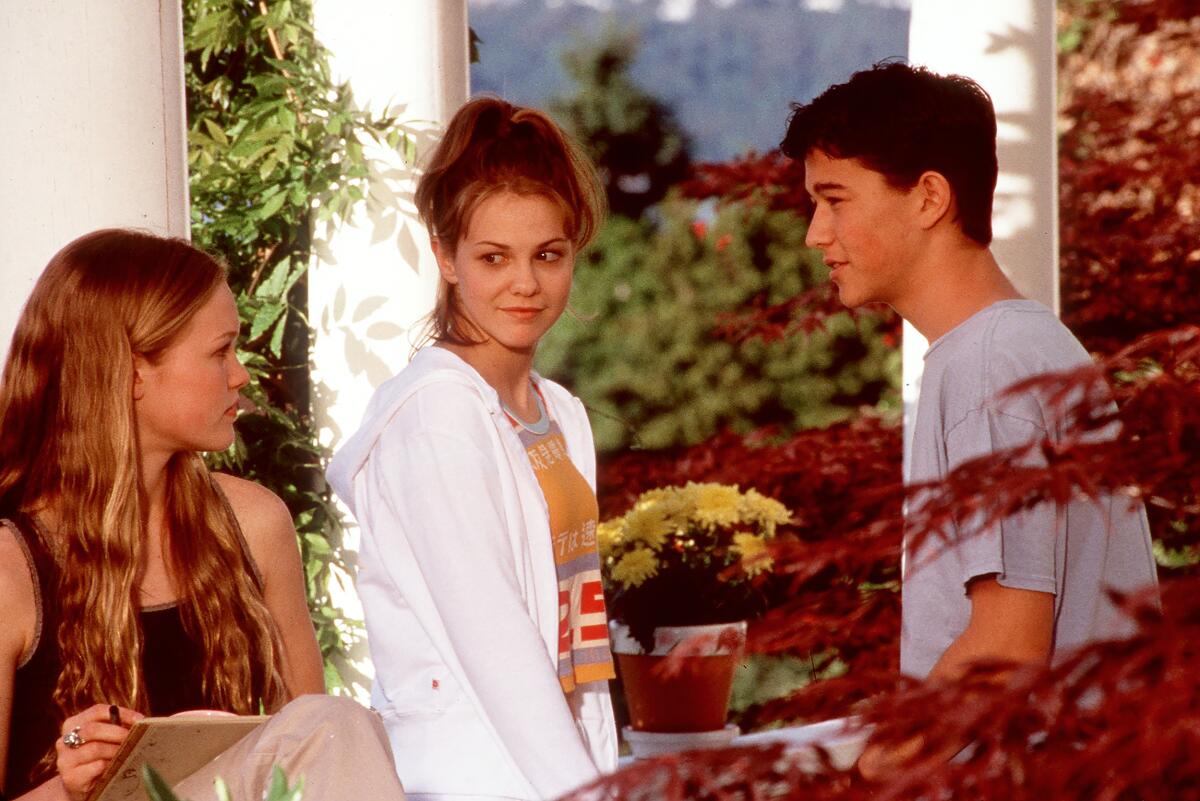
The screenwriting duo of Kirsten “Kiwi” Smith and Karen McCullah has produced a unique and distinctive body of work that exists in its own reality, where dreams come true, underdogs win and everyone lives with a song in their heart. It speaks to the strength of their shared vision that the films feel aligned — even though they are made by different directors and producers.
Their work also features a dazzling array of young, on-the-rise talents, including future Oscar winners Reese Witherspoon, Anne Hathaway and Emma Stone, along with future Nolan boys Heath Ledger, David Krumholtz and Joseph Gordon-Levitt.
Beginning Sunday, the American Cinematheque is launching a tribute series to the pair, taking place at the Egyptian, Aero and Los Feliz theaters. The series kicks off with a screening of 2008’s “The House Bunny,” starring Anna Faris. Smith and McCullah will be there for a Q&A moderated by Dylan Mulvaney. McCullah and Smith will also appear with director Tommy O’Haver for a Q&A about 2004’s “Ella Enhchanted.” Rikki Lindholme will moderate a Q&A after 2001’s “Legally Blonde” and the writers will introduce screenings of 2006’s “She’s the Man” and 2009’s “The Ugly Truth.”
And a Q&A moderated by Katie Walsh following a screening of 1999’s “10 Things I Hate About You” at the Egyptian will find Smith and McCullah joined by actors Andrew Keegan, Larisa Oleynik and Susan May Pratt.
McCullah and Smith, who still write their ideas out in longhand, recently took time on a Zoom to reflect on their careers and their colorful, idiosyncratic storytelling that has now had an impact on multiple generations of fans.
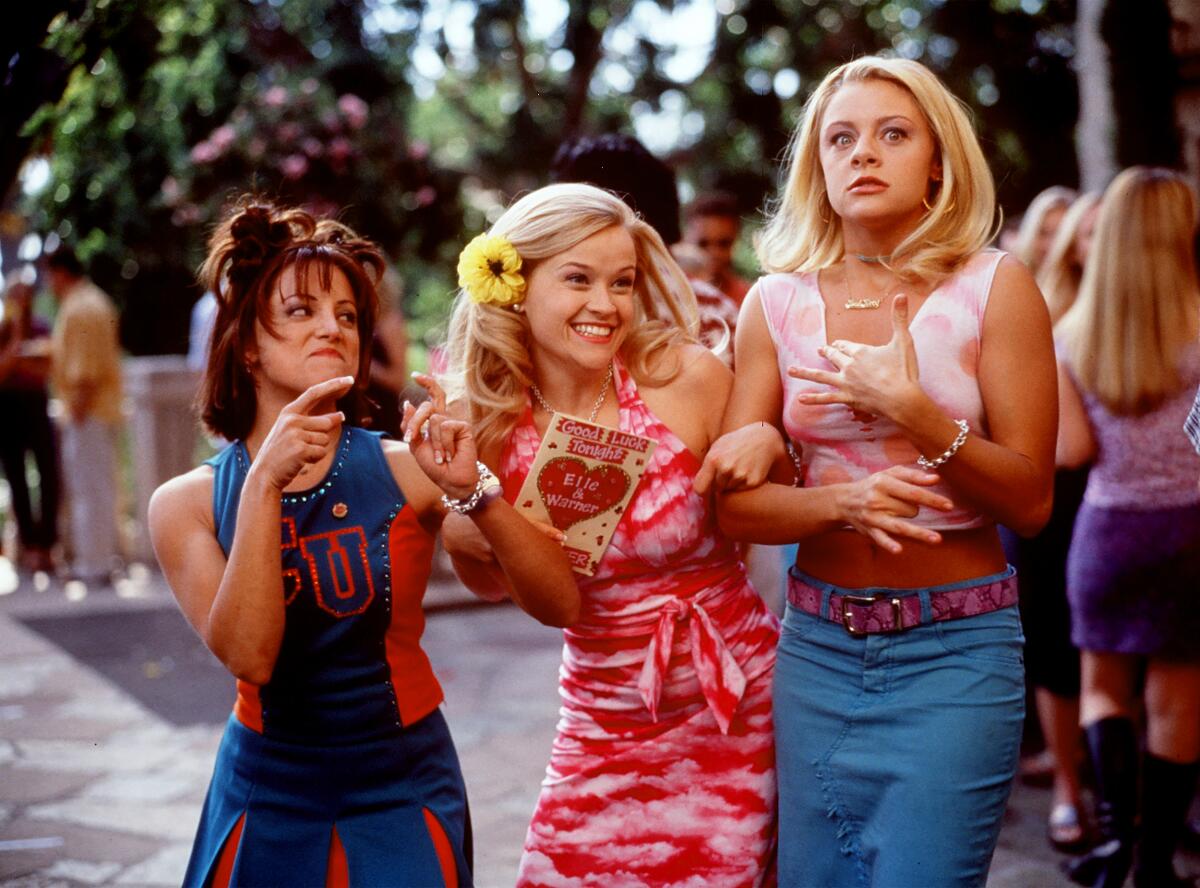
Do the two of you see a connection between your films? Do you see it as a body of work?
Karen McCullah: We know that we often write the theme of “don’t let other people define you,” between [“10 Things I Hate About You’s”] Kat Stratford and [“Legally Blonde’s”] Elle Woods and Shelly in “House Bunny,” It’s always kind of like: Don’t let what other people think of you be what you think of you. You get to make your own identity. So that theme pops up in a lot of our work.
Kirsten Smith: Also, obviously, these are all female-driven comedies that we created before the phrase “female-driven comedies” was even a phrase. And we were just doing it because these were the stories that we wanted to tell, centered on the women we wanted to tell them about. I think that’s sort of a cool thing, just seeing a whole chunk of stories about ladies — comedies about ladies all in one go.
There were so many years where our work would be sort of slightly maligned by largely male executives or buyers. And they would say, “Oh, your stuff is a little too broad.” And we would go see a lot of male-driven comedies that felt quite broad and we had found that audiences enjoyed our work too. So it was kind of a weird diss that we had to work our way through. The phrase “grounded and real” became the go-to thing that you had to really emphasize in the last 15 years of selling material and pitching. I like that it can be our unique tone, while some might sort of slander it by calling it broad — which is funny since we are broads — that now we can look at it as a positive attribute of the work.
The era most of these films are from, the late ‘90s, early aughts, is not thought of as a friendly time for women in Hollywood, whether in front of or behind the camera. For the two of you, has it been a challenge to be telling these kinds of stories?
McCullah: Definitely way more comedies were being made then. Especially in the summer, every studio had a comedy they were putting out on the weekends. When “House Bunny” came out, we were up against “Tropic Thunder” and “Hamlet 2.” And now you get like three comedies a year in the theaters. It’s a far, far different world. So it was easier to get female-driven comedies made back then than it is now, for sure. Comedies in general aren’t getting made as much.
Smith: The movie business felt less corporate. It felt a little more free. And maybe there weren’t a ton of female writing partners around, so somehow we just happened to appear at the right time and we were very driven to write tons of things. We were probably writing four scripts a year. So we wrote a lot of things that did not get made. But when you look at this cluster of things that we wrote that did get green-lit, it looks kind of like, wow, the 2000s were boom times for lady comedies.
We remember “Bridesmaids” coming out [in 2011] and every female creative in Hollywood being like, “This is it. This movie’s going to succeed, and we’re all going to get to sell our female-driven comedies.” And then, crickets. None of that happened. And I don’t really know why, but it seemed like that chunk of 2010 to 2016 was tough.
McCullah: Well, it was all men and tights. It was superhero movies and it was a very dark time for comedy.
Smith: When we started writing, we were just sort of at the beginning of this, I don’t know exactly where we were in in the third-wave feminism journey, but it seemed like people were just starting to become comfortable with the word feminism and then also were sort of like, wow, a character could be feminist and feminine. That was such a unique thing. So now it feels like we’re proud godmommies to “Barbie.” Somewhere there’s a direct line between Elle Woods and “Barbie,” which was a movie that we loved and celebrated the success of with great fervor.
McCullah: There’s still not enough comedies being made in this world. We need as many as we had back in the early 2000s because people were happier then. L.A. was super fun. Now no one’s happy. It’s not fun. It’s because not enough comedies are being made in the world. I will die on that hill. More comedies equals a happier population.
A decade of Karina Longworth’s ‘You Must Remember This’
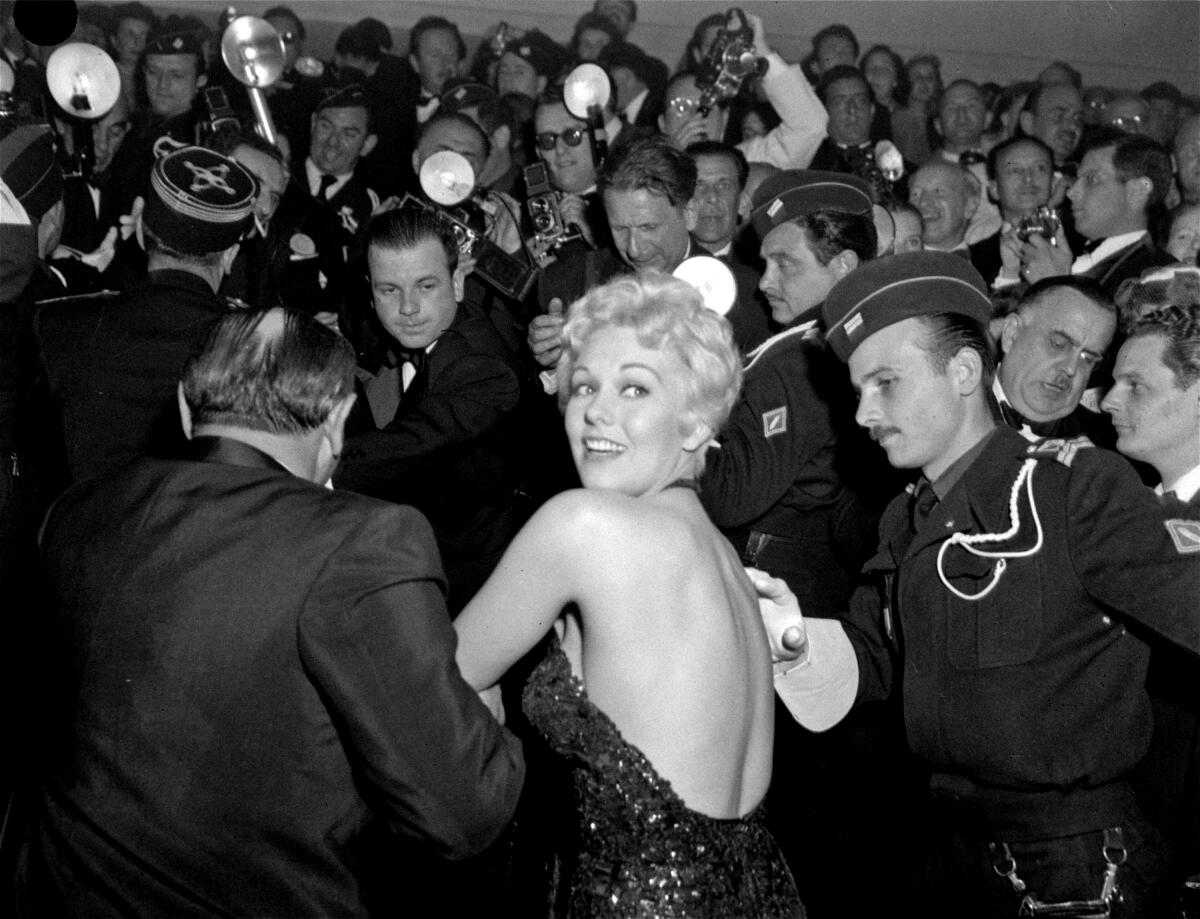
I‘ll just take it as a given that if you are reading this, you are already a dedicated listener of Karina Longworth’s podcast “You Must Remember This,” an essential program for anyone interested in the intersection of movies, history and culture. Past seasons have dug into Charles Manson’s relationship to Hollywood, the intertwined careers of Jean Seberg and Jane Fonda, Dean Martin and Sammy Davis Jr., Bela Lugosi and Boris Karloff, and the women pulled into Howard Hughes’ orbit.
The show brings the past to life in a truly uncanny way, frequently upending accepted wisdom and bringing fresh perspectives to blow the dust off and rediscover the glamour, mystery, drama and simple humanity of, in Longworth’s indelible tag line, “the secret and/or forgotten histories of Hollywood’s first century.” (Full disclosure, I have appeared as a voice actor.) Other episodes of the show have examined Hollywood’s fascination with dead blondes, reclaimed the life and career of producer Polly Platt, debunked the myths of Kenneth Anger’s book “Hollywood Babylon” and, in a recent epic run of shows, undertaken a groundbreaking dissection of depictions of sex throughout the 1980s and ’90s.
The show is celebrating its 10th anniversary with a series of screenings next week at the Egyptian Theatre spotlighting star Kim Novak, who was the subject of the podcast’s very first episode. That Novak episode has been officially unavailable for some time, and Longworth has now retooled and released the episode. It is already available to members of her Patreon and will be on other platforms beginning Tuesday, April 2.
The film series will include Billy Wilder’s “Kiss Me, Stupid” in 35mm along with Richard Quine’s “Bell, Book and Candle” and Alfred Hitchcock’s “Vertigo.” On Thursday, April 4, there will be a screening of Joshua Logan’s “Picnic” followed by a conversation between Longworth and Patton Oswalt.
I reached out to Longworth via email for her thoughts on this milestone.
What made you want to not only revisit your lost first episode but celebrate Kim Novak with this series of screenings?
The first episode has been unavailable on ad-supported platforms for so long that I think only superfans had heard it, and I got a lot of feedback that it was confusing for listeners who discovered “You Must Remember This” over the course of the past 9½ years to see that the “first” available episode was Episode 2. So this was a problem that I wanted to fix, and the 10th anniversary seemed like a good time to do that, because whatever the future holds for the podcast, at least this 10-year body of work will now feel complete.
It was John Vanco at Netflix’s idea to do a series of screenings of Kim Novak films, but I chose “Picnic” for the main event because I love it and I think it’s underseen compared to, say, “Vertigo.” There’s a scene in it, which I excerpt in the podcast episode, in which Novak heartbreakingly conveys the dehumanizing experience of being treated like a beautiful object and not a living, breathing human being. That perfectly encapsulates what I wanted to say about her and her experience in Hollywood. Also, shirtless William Holden in “Picnic” belongs on the Hollywood himbo Mount Rushmore.
What does it mean to you to have been doing the podcast for 10 years? In that span, do you feel like Hollywood history and classic cinema have seen a resurgence of interest?
Ten years is a long time to do any kind of creative project or job, let alone a podcast. I feel a great sense of accomplishment and also anxiety, because the podcast space has changed so much since I started. As I say in the intro to the “redux” Kim Novak episode, I began this show thinking it would be a kind of basement tape situation — I never anticipated that it would last this long, or attain any kind of respectability. It does seem like there is now a new generation that has gravitated toward not just classic cinema, but “alternative” moviegoing in general. Over the past 10 years I’ve gone from being one of the youngest people at retrospective screenings to being one of the oldest, which is very cool and also terrifying because no one wants to be the old guy at the club. Or at least I don’t!
Other points of interest
The youthful anxiety of ‘Free Time’
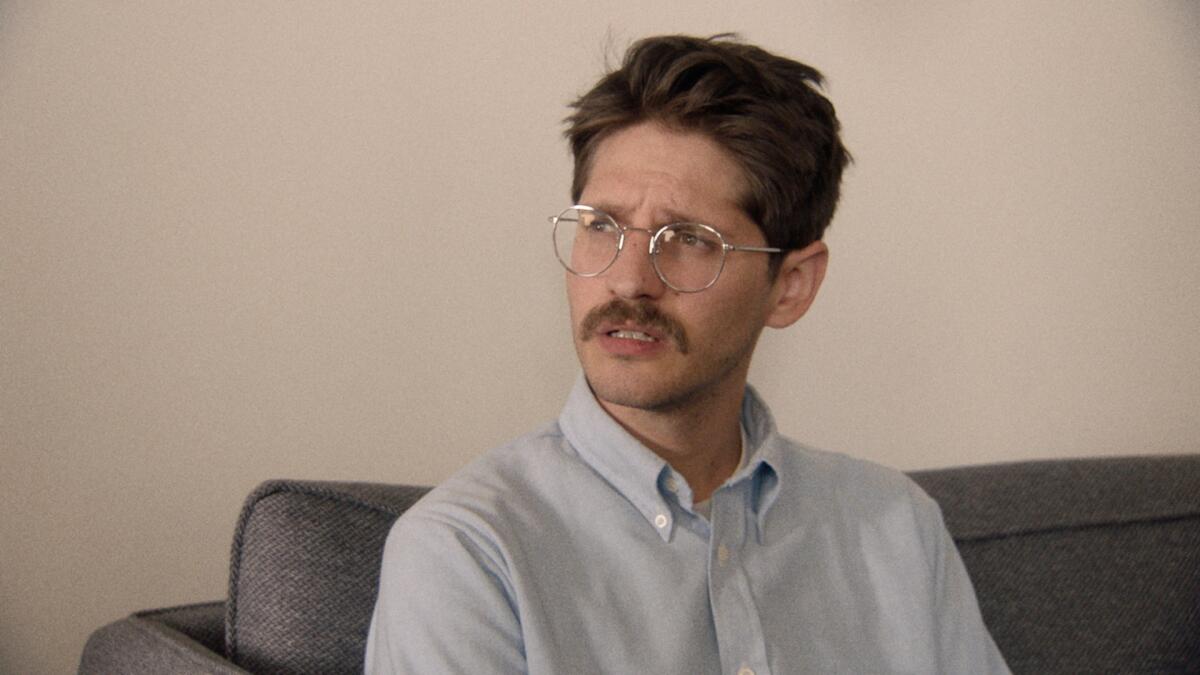
Playing like a transmission from a planet of young people, “Free Time” has an infectious energy and is a spirited reminder of what can happen when a group of friends decides to make a movie.
Written and directed by Ryan Martin Brown, the film stars Colin Burgess as a Brooklyn twentysomething who impulsively quits his desk job. Unsure of what he should do, he struggles to figure out what’s next.
With an unexpected, playful late twist that in some ways implies a whole other movie, “Free Time” is a breezy contemporary comedy drenched in the anxiety of bad options. The film is playing at the Landmark Westwood and Brown and Burgess will be there for Q&As over the weekend with scheduled moderators including “Hacks” star Hannah Einbinder as well as Anna Seregina and DJ Douggpound.
‘Yentl’ at the Skirball
The Skirball Cultural Center has, throughout March, been featuring a series called “Hello Gorgeous!” spotlighting the films of Barbra Streisand. This Sunday, the series wraps up with her 1983 directorial debut, “Yentl.” According to the publicity from studio MGM/UA at the time, Streisand, then 41, was “the first woman in the history of motion pictures to producer, direct, write and perform a film’s title role.”
Streisand is having a bit of a moment, between the publication of her memoir, “My Name Is Barbra” and recently receiving a lifetime achievement award from the SAG Awards. To see her directing efforts — which also include 1991’s “The Prince of Tides” and 1996’s “The Mirror Has Two Faces” — find newfound respect is exciting.
“Yentl” is about a young woman (Streisand) in early 20th-century Poland who disguises herself as a man to study the Jewish Talmud and finds herself in a complicated love triangle with a fellow student (Mandy Patinkin) and his fiancé (Amy Irving).
Reviewing the film, Sheila Benson wrote, “As director, co-writer, co-producer and star, Barbra Streisand has been audaciously successful with so much of ‘Yentl’ that she almost overwhelms its weak points. … She has accomplished this with taste, sureness and a sly sense of fun.”
In an interview with Dale Pollock for The Times when the movie came out, Streisand said, “What Yentl learns by the end is that if you really care about yourself, then you don’t settle. You go on to find more of what your dreams are about, what you want out of life. Life has limitations. Everything has limitations. It’s not just everything you want. But I’m saying it can all be done. Within the boundaries.”
Also in the news
Laura Dern and Bruce Dern on “Palm Royale” Yvonne Villarreal spoke to Laura Dern and her father, Bruce Dern, who are officially appearing onscreen together for the first time in the new show “Palm Royale.” Bruce, 87, is a two-time Oscar nominee with credits including “The King of Marvin Gardens” and “Once Upon a Time … in Hollywood.” Laura is an Oscar and Emmy-winning actor and also a producer on “Palm Royale.”
The stories they share are downright adorable, such as when young Laura visited father on the set of Alfred Hitchcock’s 1976 film “Family Plot,” and the crew put out a miniature director’s chair so she could sit next to the master. Or the time when Laura’s mother, Diane Ladd, called Bruce Dern to placate a distraught Laura after seeing her father murdered in a movie airing on TV.
“Oh, yeah,” Laura recalled. “This is a true story.”

